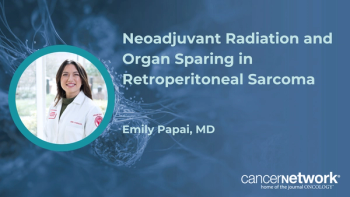
TBI Plus Etoposide Prior to HSCT Leads to Improved OS, Lower Relapse Risk in High-Risk Pediatric ALL
Based on recent study results, investigators recommended TBI plus etoposide for patients older than 4 years of age with high-risk ALL undergoing allogeneic hematopoietic stem cell transplantation.
Results from the phase 3 FORUM study (NCT01949129) found that compared with chemoconditioning, total body irradiation (TBI) plus etoposide prior to hematopoietic stem cell transplantation (HSCT) was associated with improved overall survival (OS) and lower relapse risk among pediatric patients with high-risk acute lymphoblastic leukemia (ALL).
Based on these results, the investigators recommended this treatment option for patients older than 4 years of age with high-risk ALL undergoing allogeneic HSCT.
“We conducted this prospective, randomized, controlled trial to investigate whether optimal chemoconditioning regimens could replace TBI in pediatric patients with high-risk ALL,” wrote the study authors, who were led by Christina Peters, MD.
Published in the Journal of Clinical Oncology, the randomized, controlled, open-label, international, multicenter, noninferiority study enrolled patients who were 18 years of age or younger at diagnosis and between 4 and 21 years at the time of undergoing HSCT, in complete remission prior to HSCT, and with a human leucocyte antigen–identical related or unrelated donor were randomly assigned to myeloablative conditioning with fractionated 12 Gy TBI and etoposide versus fludarabine, thiotepa, and either busulfan or treosulfan. Overall, 543 patients were screened, 417 were randomly assigned, 212 received TBI, and 201 received chemoconditioning between April 2013 and December 2018.
Of note, the investigators designed the study to include a futility stopping rule which would halt random assignment if chemoconditioning was found to be significantly inferior to TBI, which was implemented on March 31, 2019.
The median follow-up for the study was 2.1 years. Among those in the intention-to-treat population, 2-year OS probability was revealed to be significantly higher following the administration of TBI at 0.91 (95% CI, 0.86-0.95) compared with 0.75 with chemoconditioning (95% CI, 0.67-0.81; P < .0001). Moreover, the probability of cumulative incidence of relapse at 2 years was 0.12 (95% CI, 0.08-0.17) versus 0.33 (95% CI, 0.25 to 0.40) with TBI and chemoconditioning, respectively (P <.0001). Corresponding 2-year probability of treatment-related mortality was 0.02 (95% CI, <0.01-0.05) and 0.09 (95% CI, 0.05 to 0.14; P = .0269).
Regarding safety, there were no unexpected serious adverse events (AEs) reported. As anticipated, regimens were associated with substantial degrees of toxicity. At day 100, the most common grade 3/4 AEs in all arms were cytopenia, mucositis, nausea, and infection.
“The composite end point of 2-year [graft-versus-host disease–free], relapse-free survival of 72% (95% CI, 65%-78%) following TBI plus etoposide and 51% (95% CI, 43%-58%; P = .0003) following chemoconditioning might be a benchmark for future investigations, accounting for second malignancy risk,” the authors explained.
Importantly, the results of this study cannot be generalized to centers with limited or no access to TBI. Additionally, another important aspect of this study is the rather short median follow-up time. Further, early random assignment closure limited the study’s sample size, thus making the prespecified primary analysis unattainable.
“Recruitment without random assignment is ongoing as several questions of special interest require longer follow-up, that is, effect of conditioning on gonadal function, final height, organ functions, individual genetic variabilities, and secondary malignancies,” noted the authors.
Reference:
Peters C, Dalle J, Locatelli F, et al. Total body irradiation or chemotherapy conditioning in childhood ALL: a multinational, randomized, noninferiority phase III study. J Clin Oncol. Published online December 17, 2020. doi:10.1200/JCO.20.02529
Newsletter
Stay up to date on recent advances in the multidisciplinary approach to cancer.







































